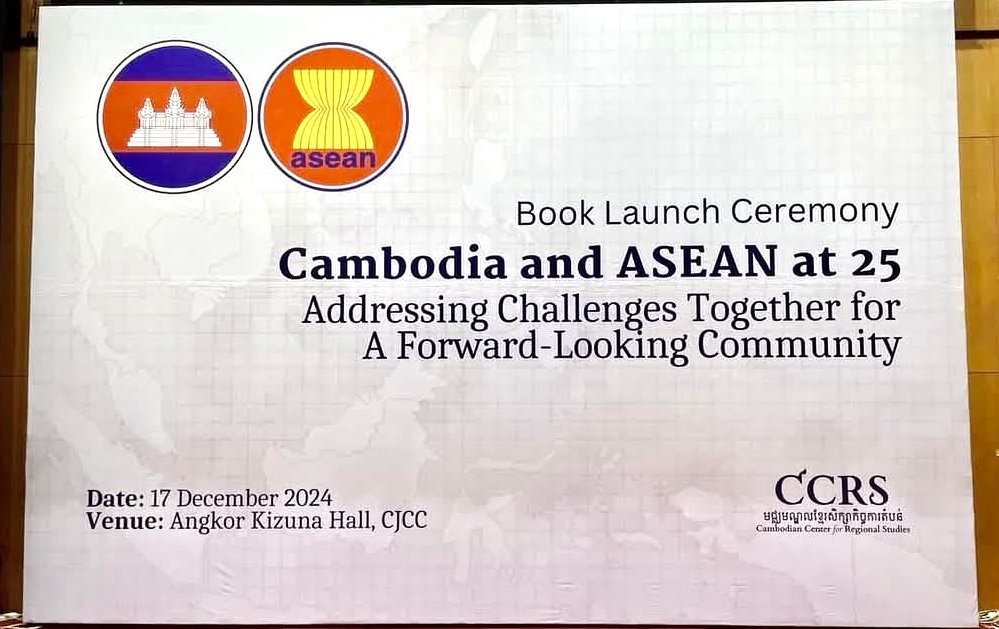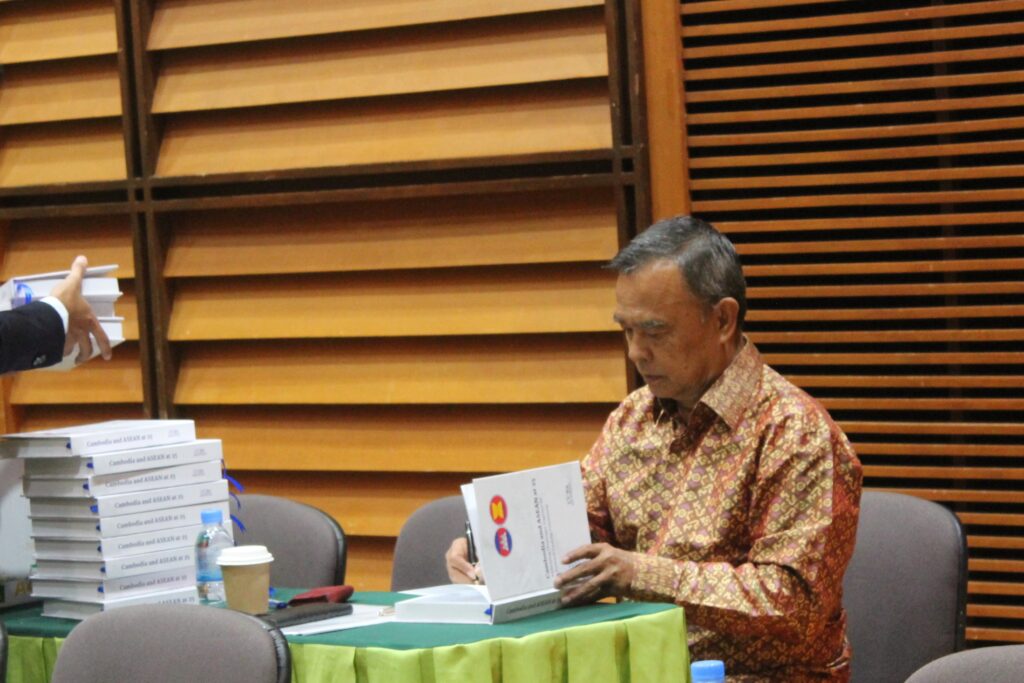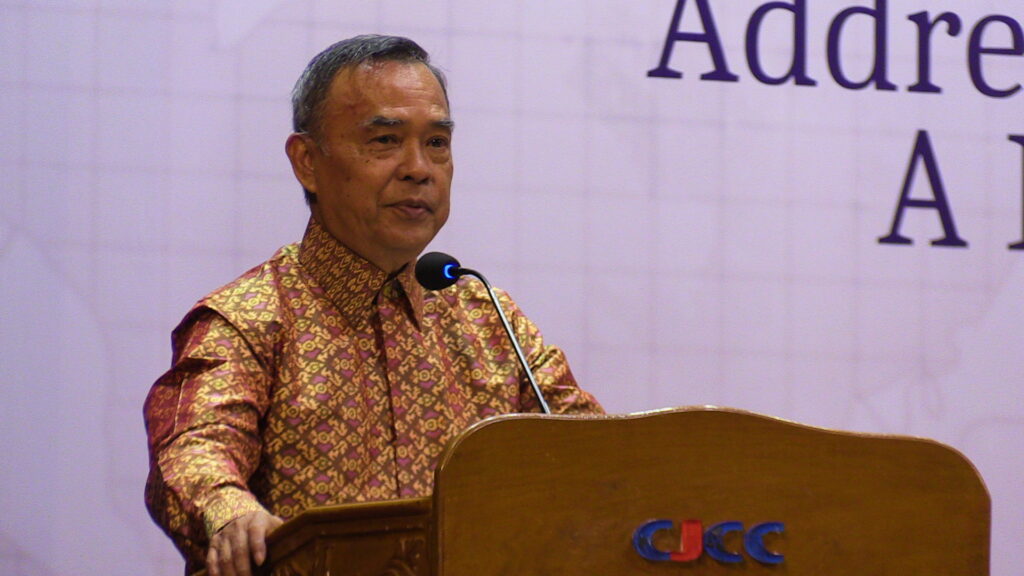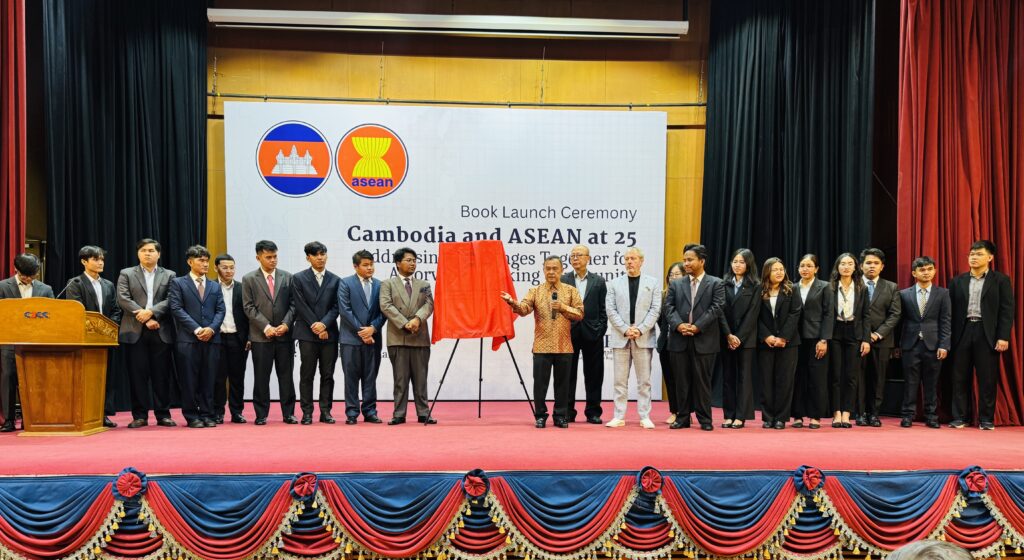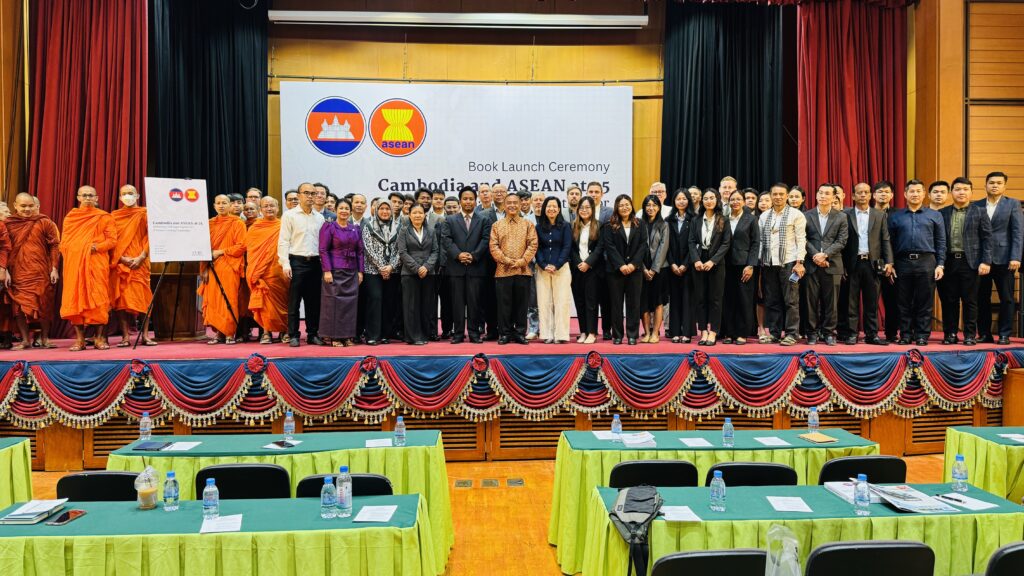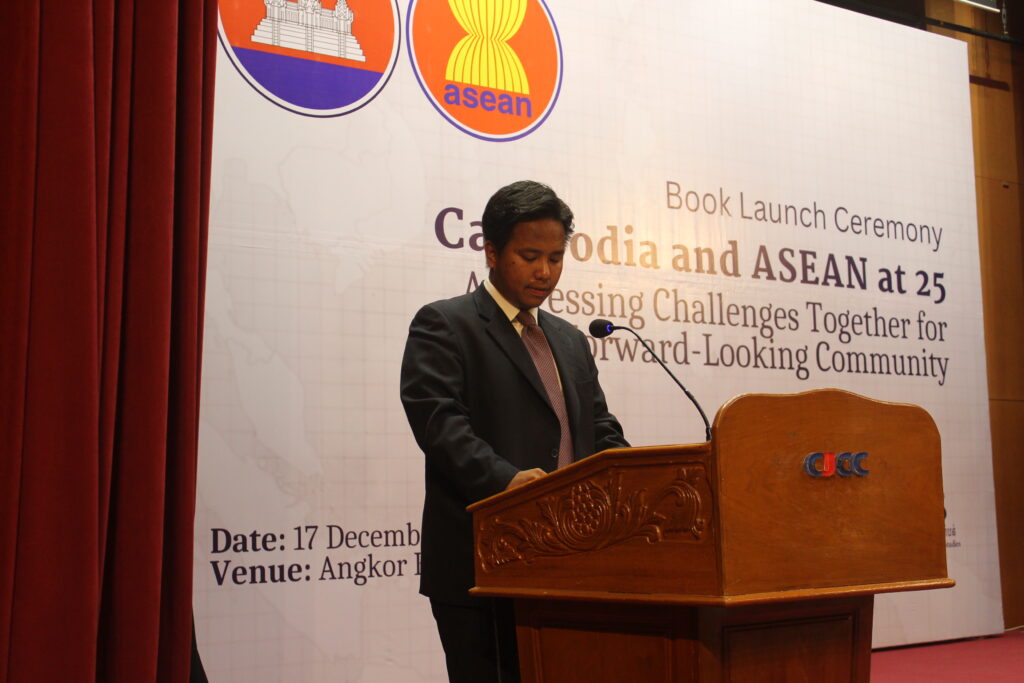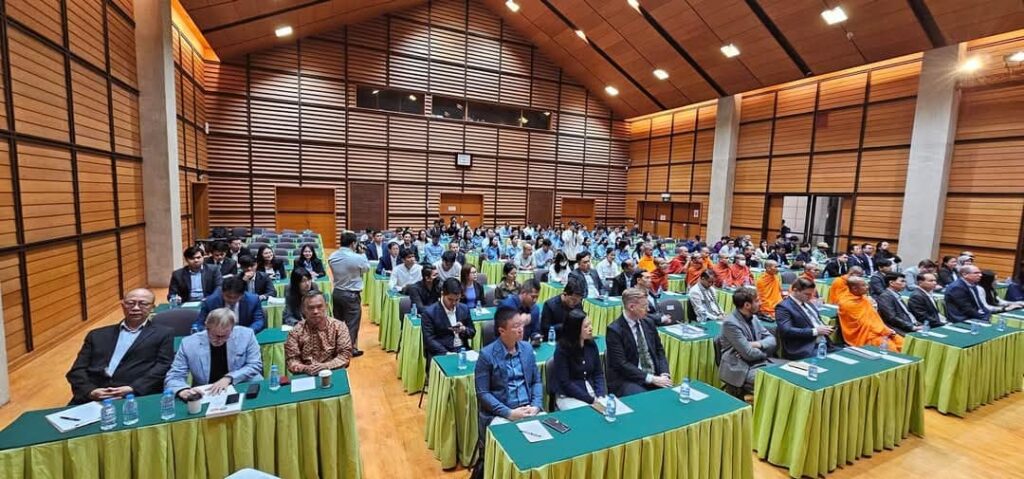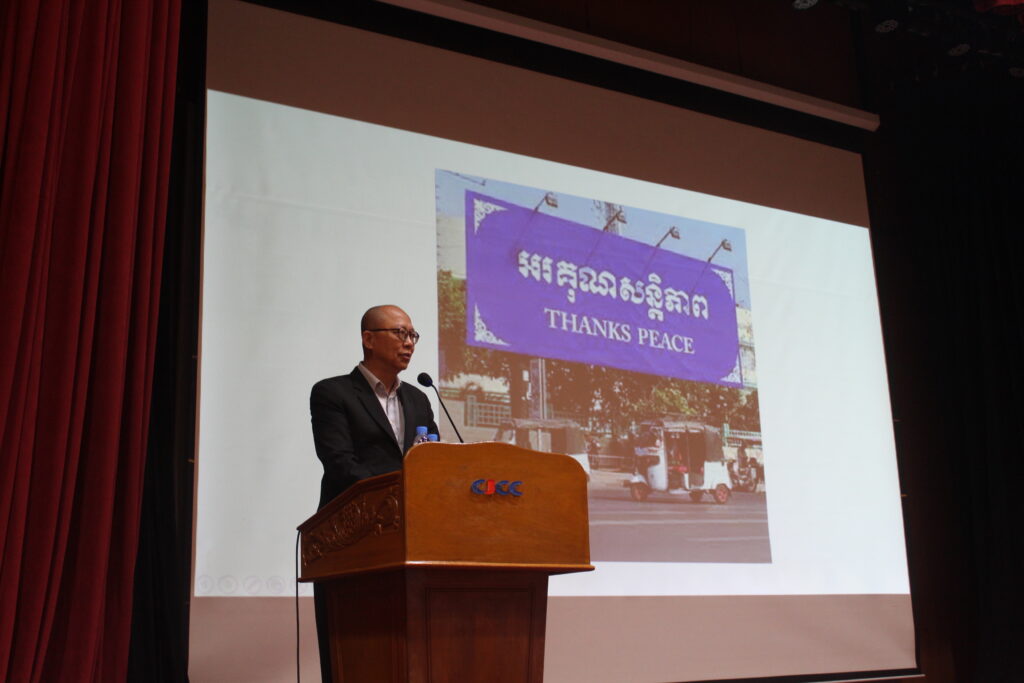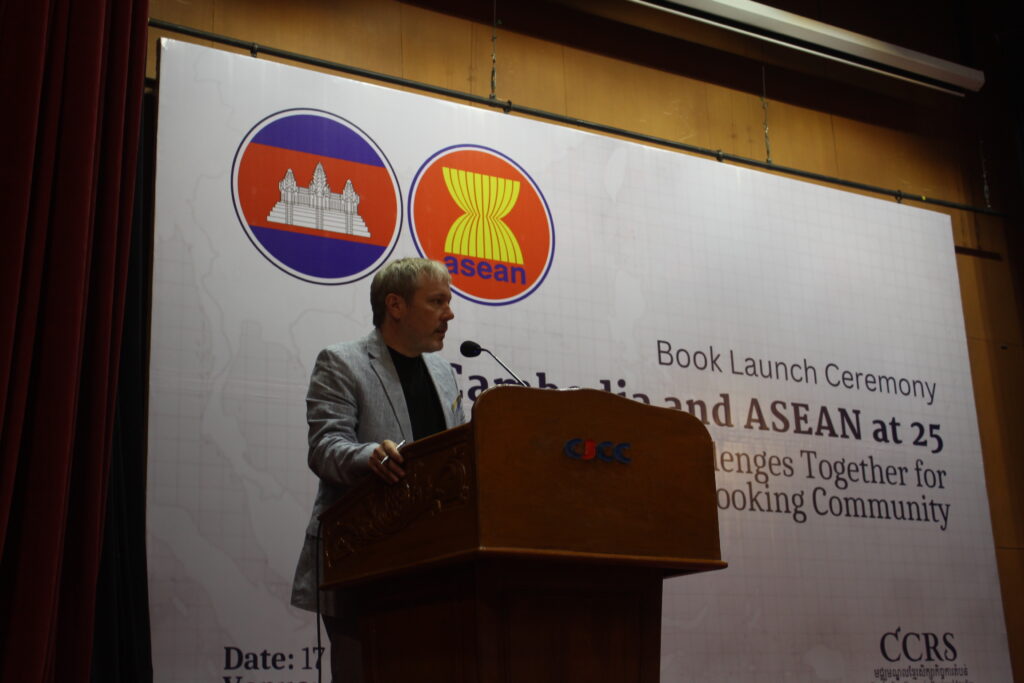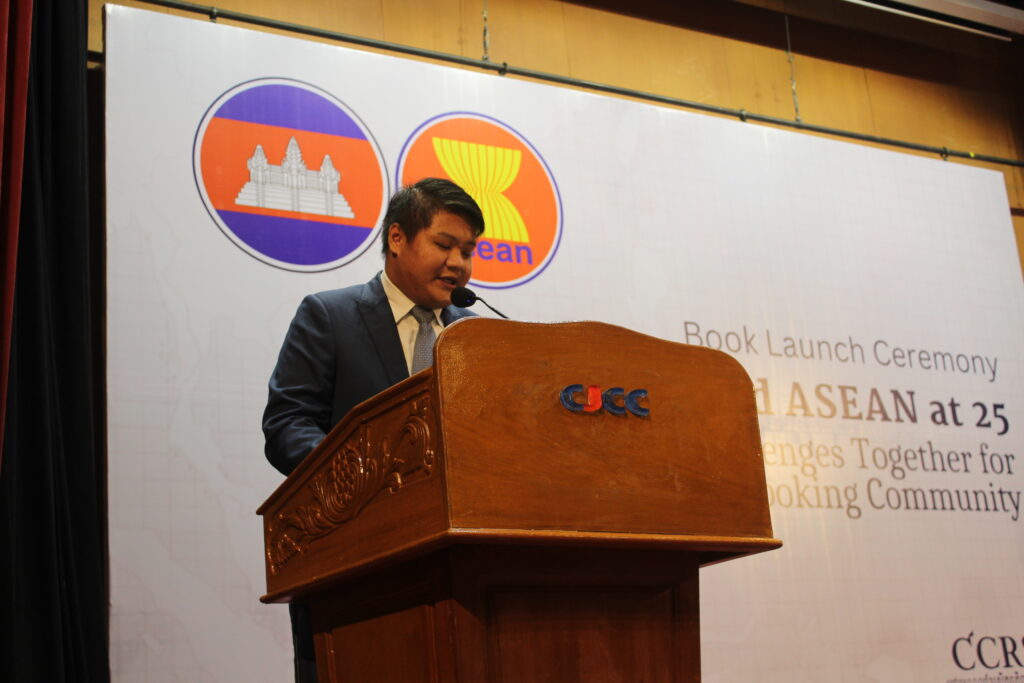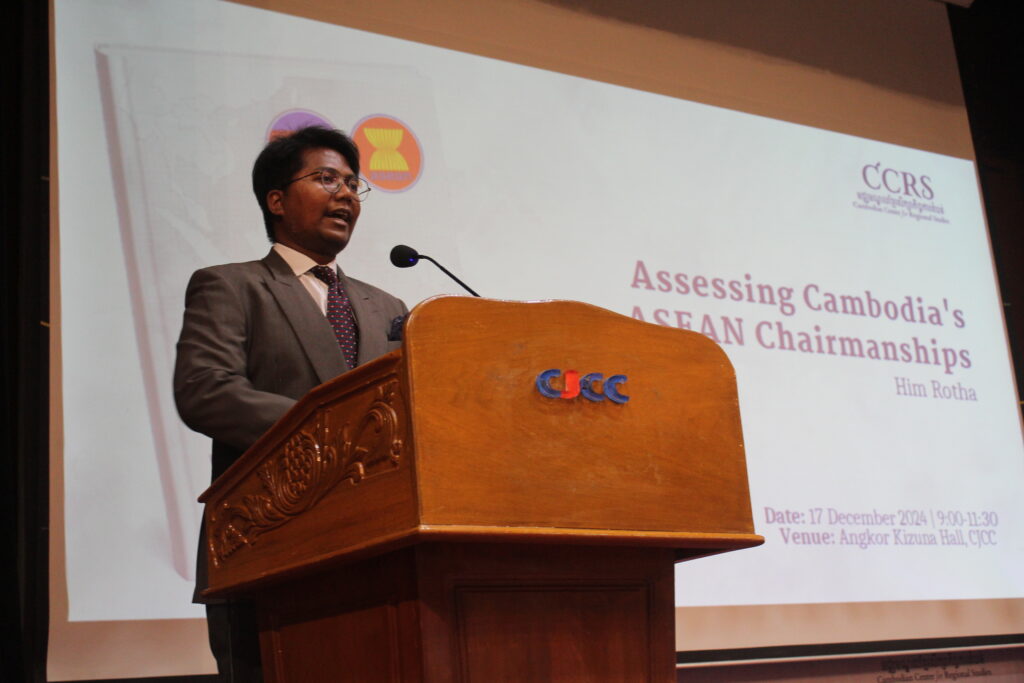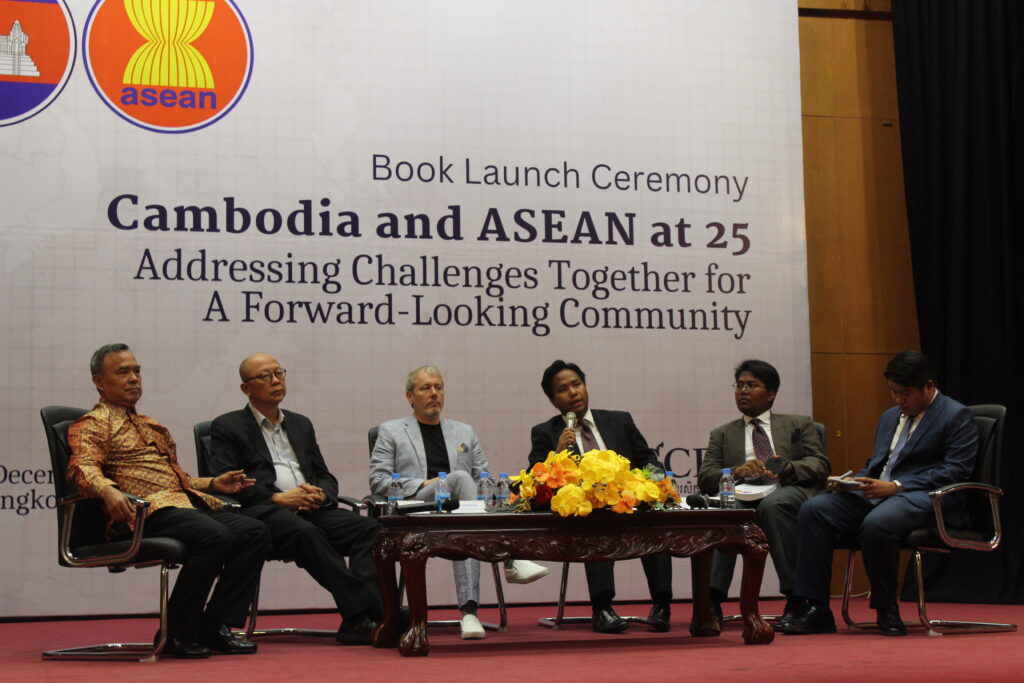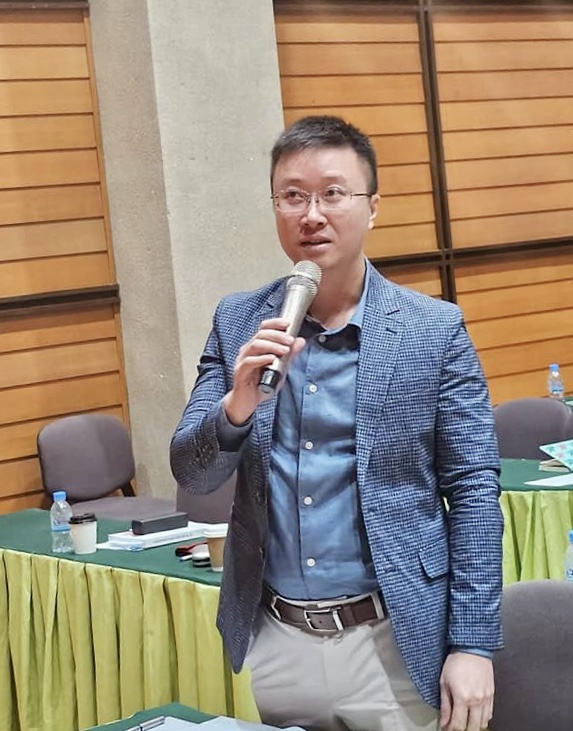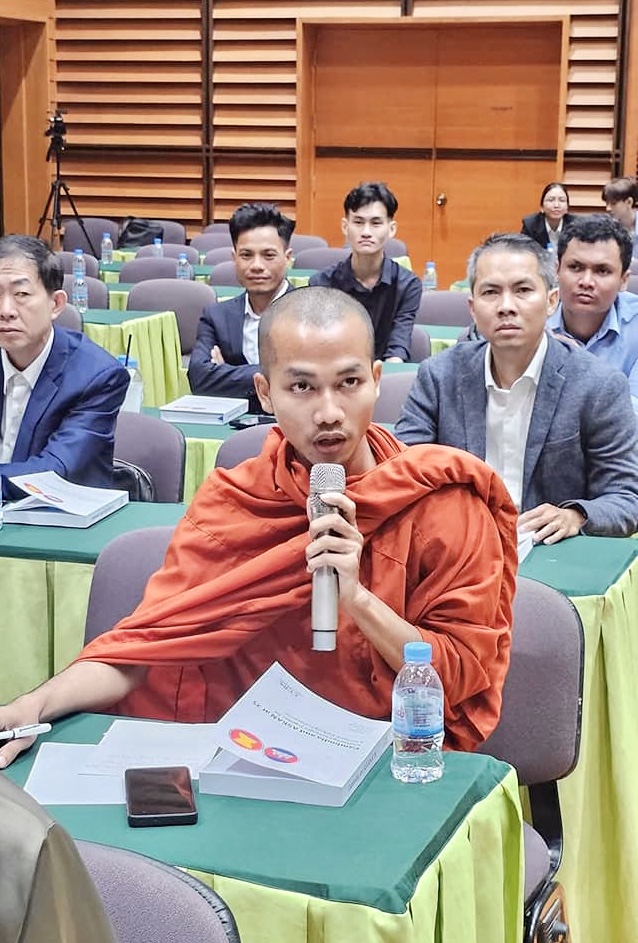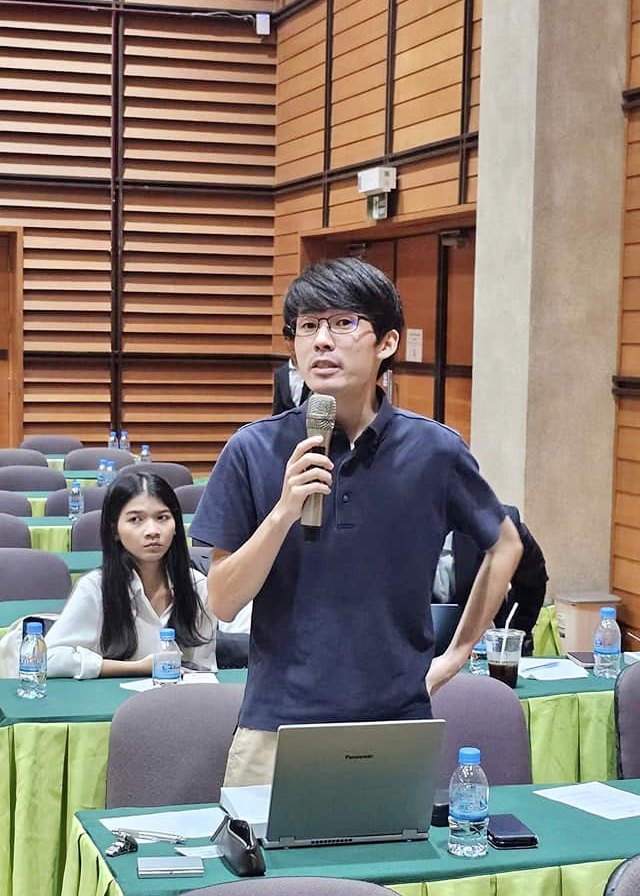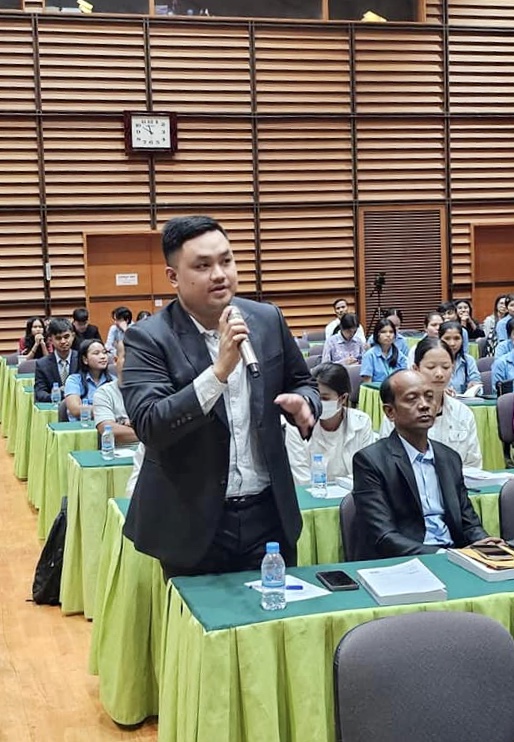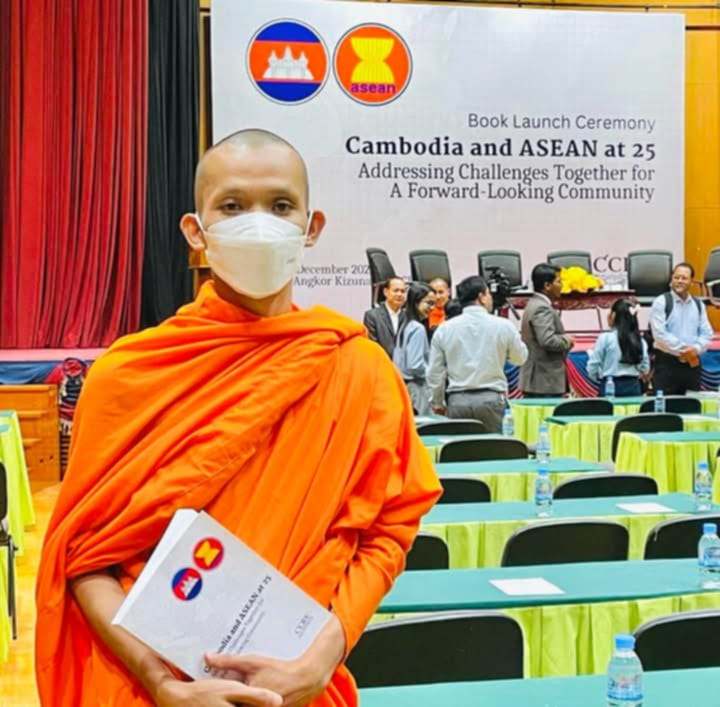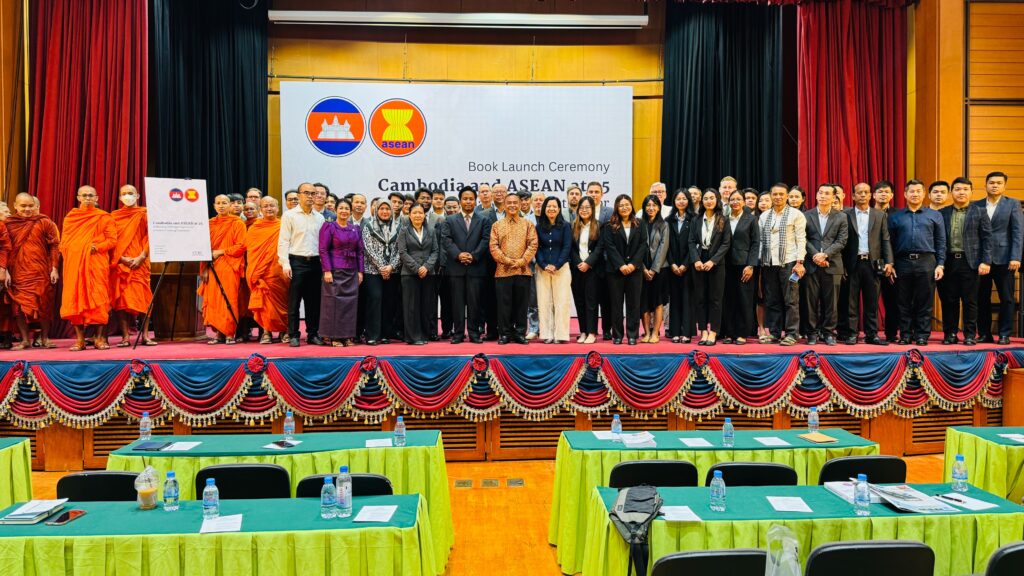On 17th December, 2024, at the Angkor Kizuna Hall, Cambodia-Japan Cooperation Center (CJCC), Phnom Penh, Cambodia, the Cambodian Center for Regional Studies (CCRS) launches a book entitled “Cambodia and ASEAN at 25: Addressing Challenges Together for A Forward-Looking Community”.
CCRS is deeply gratified to welcome a group of about 200 supportive audiences made of officials from the Royal Government of Cambodia and the senate, members of the diplomatic corps, international organizations, CSOs, NGOs, academia, university students to debut a timely publication as we commemorate the 25th anniversary of Cambodia’s accession to become the 10th member of the Association of Southeast Asian Nations on 30 April, 1999.
This publication provides academic records capturing the essence of Cambodia’s journey with ASEAN in the past 25 years. This book volume, in deed, attests to the importance of Cambodia’s interests and aspirations in the regional bloc, which the country officially joined in 1999.
Analyses and studies of the Cambodia-ASEAN relations have not been properly accounted for in the last quarter of the century. There is no single book publication capturing comprehensively why and how Cambodia’s foreign policy has always been the integral part of ASEAN’s raison d’être.
For this reason, CCRS takes upon itself a challenging task, aiming to fill a significant gap by compiling a single book volume to extensively address the relationship between Cambodia and the regional bloc and discuss salient issues that might affect this relationship as they enter their silver jubilee anniversary this year. The compiling process takes one whole year to complete.
The publication examines the 25-year process through which the Kingdom of Cambodia has reintegrated itself in the region., looking at the historical context and process leading to full ASEAN membership, assessing Cambodian Chairmanship three times from 1999 to 2024, and discussing Cambodia’s contributions to ASEAN institutionalization and how ASEAN has contributed to Cambodia’s nation-building process and vice versa. The book also examines Cambodia’s strategic position with regard to the US, China, the EU, Japan, South Korea, Laos PDR, and Thailand as well as other relevant challenging geostrategic issues faced by Cambodia while engaging ASEAN during the span of the past 25 years.
By joining ASEAN, the successive Royal Government of Cambodia has been able to restore peace and stability; safeguard Cambodia’s independence and protect its sovereignty; strengthen the political and social cohesiveness and promote economic development; build up physical infrastructure and human capacity, increase Cambodia’s voice; and integrate the country into regional and global affairs. However, internal and external challenges remain for the country to overcome to build a brighter Cambodia that is holistic and fully integrated in the region and beyond.
By leveraging on ASEAN’s unique strengths, Cambodia has been able to build friendly ties and cooperation within the region and beyond toward peace, stability, and security, as well as enhance Cambodia’s regional and international integration, and stand as a responsible member of the international community.
ASEAN plays a central role in advancing Cambodia’s foreign policy, as the country needs to continue to build national resilience to maintain peace and political stability and focus greater attention on improving the well-being of the people, as well as deepen ASEAN’s vision to safeguard national autonomy while preserving regional diversity and collective interests.
This book volume contains 28 well-written chapters by independent scholars and experts across the wider region, classified into five distinctly composed chapters, ranging from historical backgrounds to the assessment of the three-time Cambodian Chairmanship of ASEAN from 1999-2024. There are also chapters dealing with Cambodia and ASEAN partnership; relations between Cambodia, its neighbors, and the major powers; and regional prospects and challenges faced by ASEAN.
The realization of this important book has been made possible by immense efforts made three dedicated Cambodian scholars who establish CCRS as an emerging foreign policy think tank in Cambodia. They are the driving force from the start up to the finish line and they have given all their best attention to the fulfillment of this book. These three young scholars are Mr. Him Raksmey, Mr. Him Rotha, Mr. Chhoun Vanndasambath. They are executive director and deputy executive directors of CCRS respectively, and they are energetic and prolific young emerging think tankers of Cambodia.
The book contains valuable contributions from the local and overseas academics and experts who have spent many hours of their valuable time to author a different set of articles expertly written in accordance to the book’s overall theme. Most notably, they have made their contribution in a pro bono manner to encourage CCRS as an emerging young generation think tank to promote the newly established think tank, CCRS, within the community of regional scholars. The author names and their accreditations are listed in the book.
The editorial team have done diligent works by undertaking the tedious task of copyediting and proofreading to ensure that the submitted manuscripts are correct, consistent, accurate and complete essays. All editorial team members also perform their task on a pro bona as well. This publication would not been possible without the dedicated edited works of Amb. Pou Sothirak, Dr. David Koh, Dr. Heng Kimkong, and Prof. Kevin Nauen.
CCRS sincerely extend deep appreciation to Dr. Sorpong Peou, Professor of Global Peace & Security at Toronto Metropolitan University, Toronto, Canada, who is a Cambodian born and internationally well-known scholar for the meaningful Foreword he provided for this book which truly represents a source of inspiration and encouragement for all Cambodian scholars and researchers, as well as for CCRS team who put together the book.
CCRS wishes to dedicate this resounding publication to the wider scholarly communities whose interest is in the studies of Cambodia and ASEAN, in general, and to younger generations of Cambodians, in particularly university students and academics, to help them gain a deeper understanding of the great significance of the 25-year milestone of Cambodia’s ASEAN membership. Furthermore, CCRS hopes the readers of this book find it interesting and insightful. This book definitely serves as relevant and resourceful reference materials for the young Cambodian IR students to explore the intriguing foreign policy interaction of the past, present, and future between Cambodia and ASEAN.
